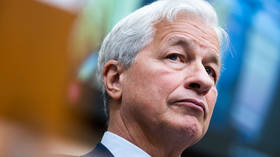Bloomberg estimates economic cost of Iran-Israel conflict

The global economy would fall into recession with oil prices skyrocketing if Iran were to get involved in the Israel-Palestine conflict, Bloomberg reported this week.
According to Bloomberg Economics, analysts are viewing the impact on global growth and inflation under three potential scenarios: with hostilities largely confined to Israel and the Palestinian territories; with the conflict spreading to Lebanon and Syria; and with a direct confrontation between Israel and Iran.
While all the three scenarios are likely to cause a surge in oil prices, higher inflation and slower global economic growth, a full-blown war between Iran and Israel would cause the most damage, analysts say.
“The wider the conflict spreads, the more its impact becomes global rather than regional… Conflict in the Middle East can send tremors through the world because the region is a crucial supplier of energy and a key shipping passageway,” they wrote.
In that event, oil prices could spike to $150 a barrel. Global inflation would be likely to surge to 6.7% from the current IMF 2024 forecast of 5.8%. Global growth would be likely to shrink by 1% from the current projections for next year, to 1.7%. This would be the worst figure since 1982, and, in monetary terms, would cost the global economy roughly $1 trillion.
“The spare production capacity in Saudi Arabia and the UAE may not save the day if Iran decides to close the Strait of Hormuz, through which one-fifth of the world’s daily oil supplies pass. There’d also be a more extreme risk-off shift in financial markets,” analysts warn.
The effects would be felt quickly, analysts claim, because many countries are still battling inflation caused by the West’s Ukraine-related sanctions on Russia, which have reoriented global trade, including oil and gas flows. They warn that another war in an energy-producing region could push the global economy into a recession.
Bloomberg notes, however, that a direct conflict between Iran and Israel is still “a low probability scenario.”
This month’s hostilities between Palestinian militant group Hamas, which controls Gaza, and the Israel Defense Forces, has already caused a surge in global oil prices. International benchmark Brent crude futures for December delivery closed at $90.8 per barrel on Friday, up from roughly $84 per barrel a week before.
For more stories on economy & finance visit RT's business section














